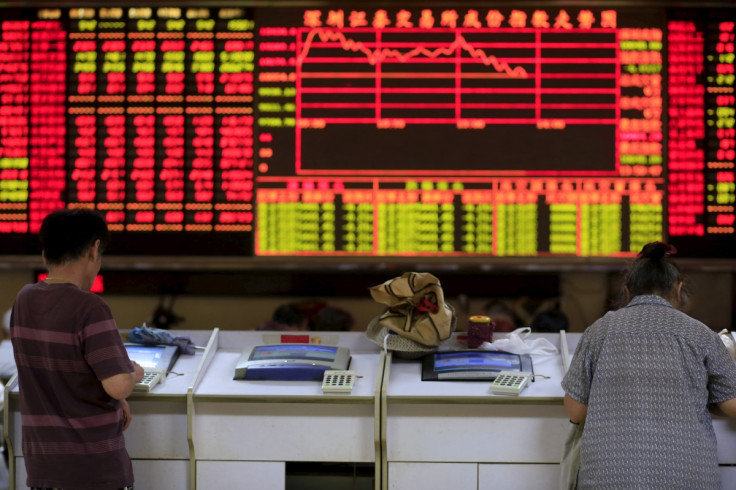Asian markets: Shanghai Composite declines following China's weak manufacturing data

While Asian stock markets were tracing a mixed pattern on 1 February, China's Shanghai Composite Index was in the red. This was because of weak official data released earlier that showed China's factory sector contracting for the sixth straight month.
Official manufacturing purchasing manager's index (PMI) for the month of January 2016 came in at 49.4, missing a Reuter's estimate for 49.6. A reading below 50 is considered a contraction in activities. While this reading not only acts as an important indicator of manufacturing activity in the country, it also indicates the health of the economy as a whole. For the purpose of calculation it takes into account five factors, namely production level, new orders, supplier deliveries, inventories and employment level.
Strategists at ANZ said: "As deflationary pressures remain high, further reserve requirement cuts are still needed to support the slowing economy and permanently inject liquidity into the market. In fact, refraining from further easing could risk an even weaker economy, which will then intensify depreciation expectation and capital outflows."
Meanwhile, indices in the rest of Asia traded as follows on 1 February at 5:27am GMT: China's Shanghai Composite Index was trading at 2,699.95, down 1.38%; Hong Kong's Hang Seng was at 19,562.29, down 0.61%; Australia's S&P/ASX 200 was at 5,043.60, up 0.76%; South Korea's Kospi was trading at 1,914.66, up 0.14%; India's CNX Nifty was trading higher by 0.37% at 7,591.25. Japan's Nikkei 225, which got a boost on Friday (29 January) after the county's central bank adopted a negative interest rate policy, was trading higher by 1.87% at 17,845.05.
On 29 January (Friday), the Dow Jones Industrial Average closed higher by 2.47% at 16,466.30, while the FTSE 100 closed higher by 2.56% at 6,083.79.
Cliff Tan, head of global markets research with Bank of Tokyo-Mitsubishi UFJ, said: "In the short term, the surprise move by Japan will be a catalyst for global equities but it only underlines the weakness of the global economy and we need to see some strong economics data for a sustainable rally."
Among commodities, oil prices, which have remained under pressure after international sanctions against Iran ended, continued to trade in the red with WTI crude oil trading lower by 1.58% at $33.09(£23.2, €30.5) a barrel and Brent Crude trading down by 1.81% at $35.34 a barrel at 5:42am GMT on 1 February.
© Copyright IBTimes 2025. All rights reserved.




















